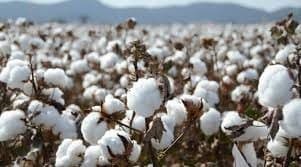Fashion for Good, a global initiative that strives to make all fashion good, has launched a new, two-year pilot project in collaboration with leading brands Kering and PVH Corp, and leading global textile manufacturer Arvind Limited to pilot a radically resource-efficient cotton farming technology provided by Fashion for Good innovator, Materra.
Materra’s innovative combination of precision agriculture, environmental control and real-time data tracking facilitate resilience for cotton farming in developing regions where climate and resources prove challenging for cotton cultivation, the Fashion for Good-led consortium said in a press release.
“38% of the fashion industry’s carbon footprint lies with raw materials production, preparation and processing, innovations in this area such as radically resource efficient cotton farming, a staple fibre for the industry, is hugely important. This consortium pilot project brings together unique expertise from across the supply chain to pilot and ultimately scale this solution in key regions,” said Fashion for Good managing director Katrin Ley.
In addition to their operational support, Kering, PVH Corp, and Arvind Limited provide the financial backing to enable the two-year project. The project leverages Arvind’s local knowledge and network with a 1.5-hectare farm being set up in the Gujarat region in India. Fashion for Good initiated and will manage the project in addition to financing the project through an equity investment in Materra.
“Materra’s innovation brings in producing extra-long staple cotton in India, as well as the live production data that will be gathered throughout the pilot. This aligns with Kering’s goals in both raw materials, which makes up 65 per cent of the Kering Group’s overarching environmental footprint, and traceability, helping us move towards achieving our goal of reducing our overall footprint by 40 per cent by 2025,” said Christine Goulay, head of Sustainable Innovation, Kering.
The farm will grow extra-long staple cotton, which is often used in more high-end products, and provides the region with opportunities to explore implementing the fibre that has historically not been grown in large volumes in Northern India as its cultivation requires specific climatic conditions that are only met in a limited number of regions. The cotton generated on the farm, which will total 3 tonnes by the completion of the project, will be divided amongst the three partners to produce garments that will be made commercially available from 2023.

